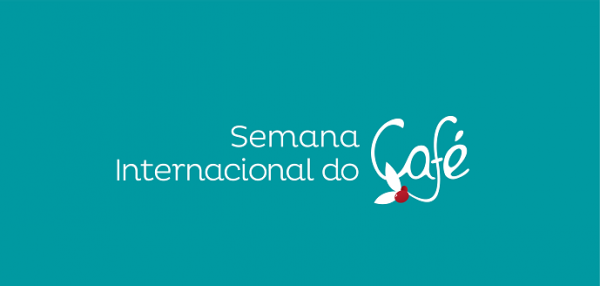
Since 1999, Cecafe operates with success in representing and defending the interests of coffee exporters. More than a representation entity, Cecafe is a consolidated platform of support to Brazilian coffee exporters, nationally and internationally recognized.
The entity has been searching to actively take part in national and global discussions on sustainability in an effective, dynamic and contextualized way, in order to protect coffee exporters’ interests, with the purpose of improving and expanding its programs. Reaffirming the important partnerships with the export trade, research and educational institutions, private and public companies, NGOs and associations, Cecafe will take part in the International Coffee Week (SIC), from October 25 to 27, 2017.
Since 2013, the International Coffee Week became one of the most important events of the coffee segment promoting Brazilian coffee. The week receives approximately 13,000 people in Belo Horizonte every year, bringing together representatives of the whole chain – both national and international. Furthermore, SIC will hold the Sustainable Coffee Production Forum, with lectures and panels that will specifically discuss the subject.
The importance and visibility of SIC provides an opportunity to bring together national and international institutions for a multi-stakeholder stand. Cecafe acts jointly with the U.S. NGO Catholic Relief Services (CRS), the National Pace to Eradicate Slave Labor Institute (InPACTO), Fundação Neumann Brail and the company “3 Corações”.
Each partner is engaged in different actions: CRS acts to promote communities sustainable development worldwide and InPACTO has as its mission the eradication of slave work in the various economic segments in Brazil; Fundação Neumann has its roots in coffee agribusiness, promoting the empowerment of farmers and their families, and the 3 Corações Group employs sustainability in its operations.
Having established Social Responsibility and Sustainability as one of its main pillars, Cecafe will present its programs and work proposal for the coming years, based on strengthening partnerships and expanding actions in favor of Brazilian coffee production sustainability. Hence, it is possible to demonstrate how partnerships enhance our results as well as how we promote the dialogue between different institutions with common purposes.
Cecafe recognizes the challenges in the sustainability sphere and understands that the form to overcome them is through uniting efforts and expertise. When we move ahead together, we are able to increase resilience of Brazilian coffee and continue to be a world force in the industry.
Below is a summary of Cecafe´s main Social Responsibility and Sustainability Programs. These initiatives are open to all our members and coffee chain representatives that wish to join us in this extremely important mission.
1 – Digital Coffee Farmer Program:
The Digital Coffee Farmer Program aims at bringing knowledge and digital inclusion to farmers, stressing the good agricultural practices with the purpose of increasing productivity, yield and quality of the coffees through access to information and guidance. Created by Cecafe in 2006, and initially conceived to bring digital inclusion to coffee farmers, by teaching them the basics in computer science in the classrooms of the Criança do Café na Escola.
Since 2015, in a partnership with the Coffee Global Platform, the Program was expanded. It includes 14 two-hour long classes, six of them of basic computer classes and eight hours of Good Agricultural Practices classes (based on the Coffee Sustainability Program), with handouts and support material. Approximately 4,100 farmers completed the program since it was created, and it is expected that 1,500 will complete it in 2017.
2 – Coffee Table Project
Aware of the international demands for the industry, Cecafe began to support the Coffee Table Project at an invitation of the National Pact to Eradicate Slave Labor Institute (InPACTO) and of the Catholic Relief Services (CRS). The initiative aims at promoting aspects of transparency and promoting decent labor conditions in the coffee industry of Brazil and counts with the support of certifying entities, governments and important international roasting companies.
With action focused in the state of Minas Gerais, the first effort will be to raise awareness about social issues related to coffee production in the region and to mobilize governments, companies and civil society, to establish a common agenda focused in improving labor conditions. Brazil is the leader in the coffee global market, recognized as the largest sustainable coffee exporter worldwide. The purpose of the above-mentioned partnership is to contribute to the Brazilian coffee sector to consolidate itself as a global reference of the socially sustainable productive chain.
3 – Safe Coffee Program
Safe Coffee is a program focused in raising the awareness and provide guidance to coffee farmers about production care to guarantee beans free of contaminants, in view of the increasing demands of the market, both domestic and international. The program was created in 2006 with the purpose of avoiding problems related to pesticides residues in coffee beans above the tolerable limits, taking into consideration the demands of importing markets. Over 10,000 farmers were reached through teaching materials and field days, counting with the partnership with Cooxupé, SINDIVEG, CNC, CNA, SENAR-PR, Ministry of Agriculture (MAPA) and Embrapa Café.
The Program was reactivated in 2017 as a tool to overcome phytosanitary challenges that occur nowadays – with emphasis on the coffee berry-borer through a broad discussion with all the representatives of the entities that form the productive chain to create an agenda of continuous work. The high rates of coffee berry-borer infestations are bringing losses to the industry, making it necessary to analyze the agronomic effectiveness of the registered products, product use technology, new molecules that are in the process of being filed as well as regulatory discussions at the Brazilian Health Surveillance Agency (Anvisa) level.
Marcos Matos – Chief Executive Officer – Cecafe
Marjorie Miranda – Coordinator of Social Responsibility and Sustainability – Cecafe


Leave A Comment